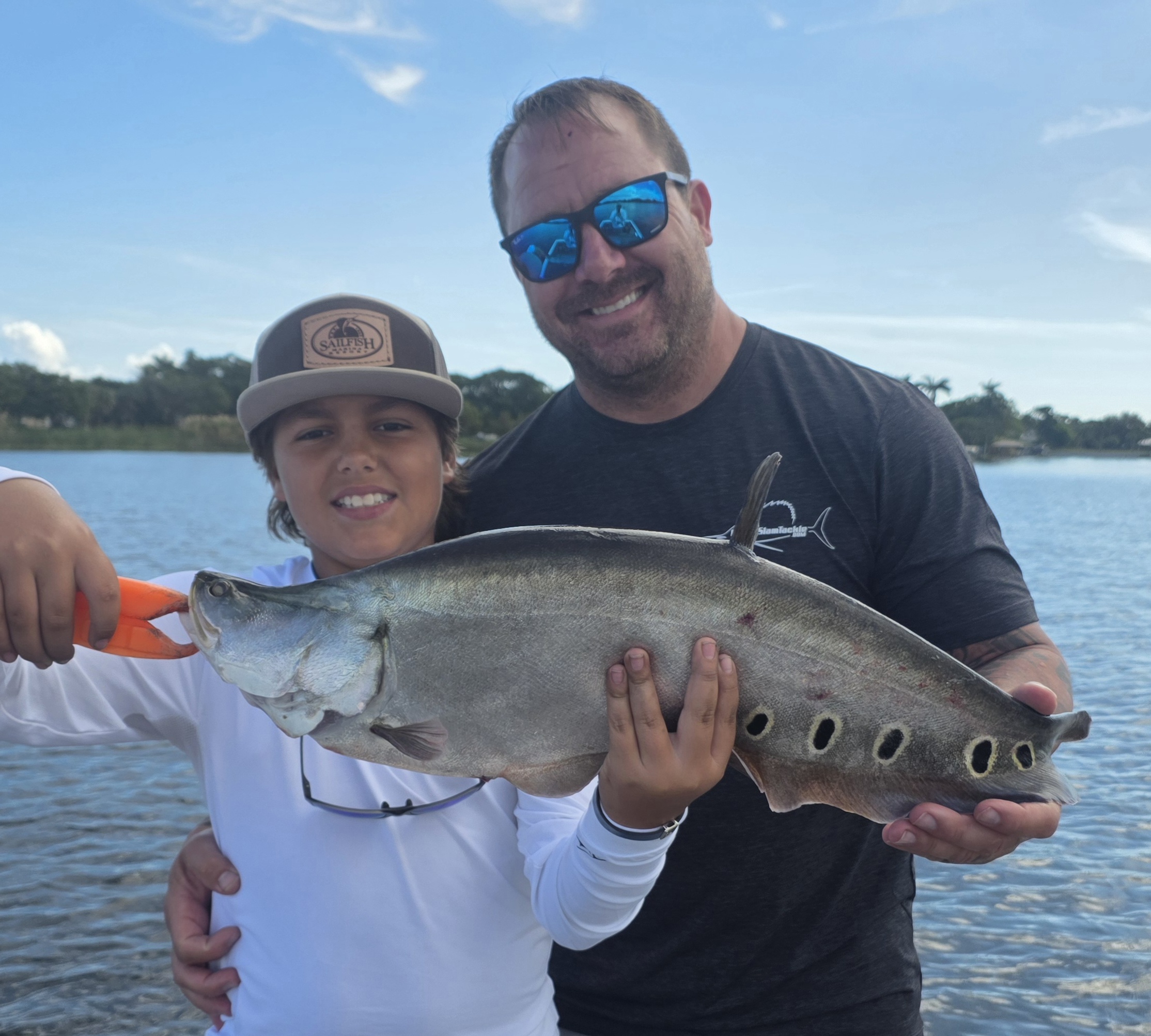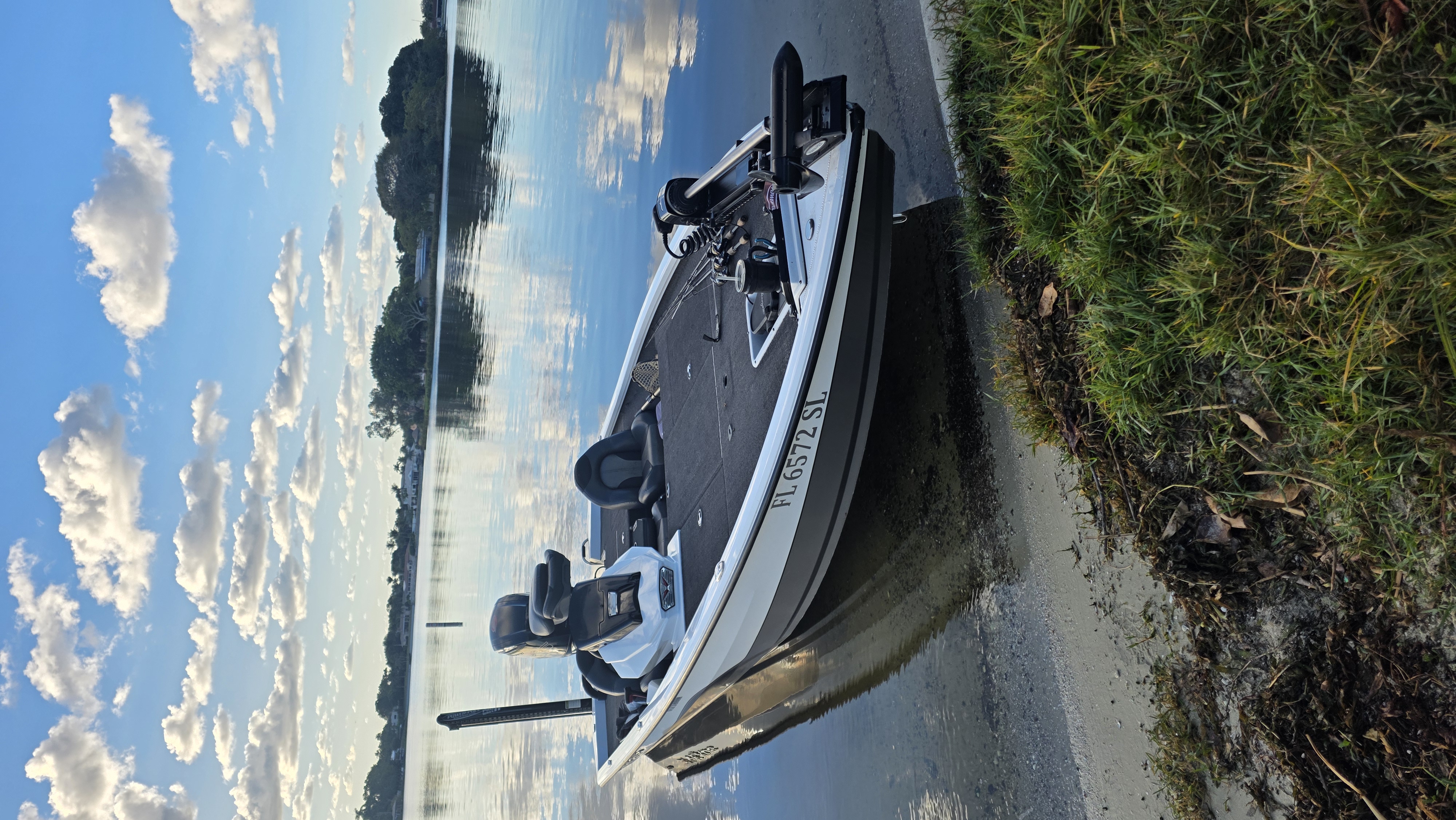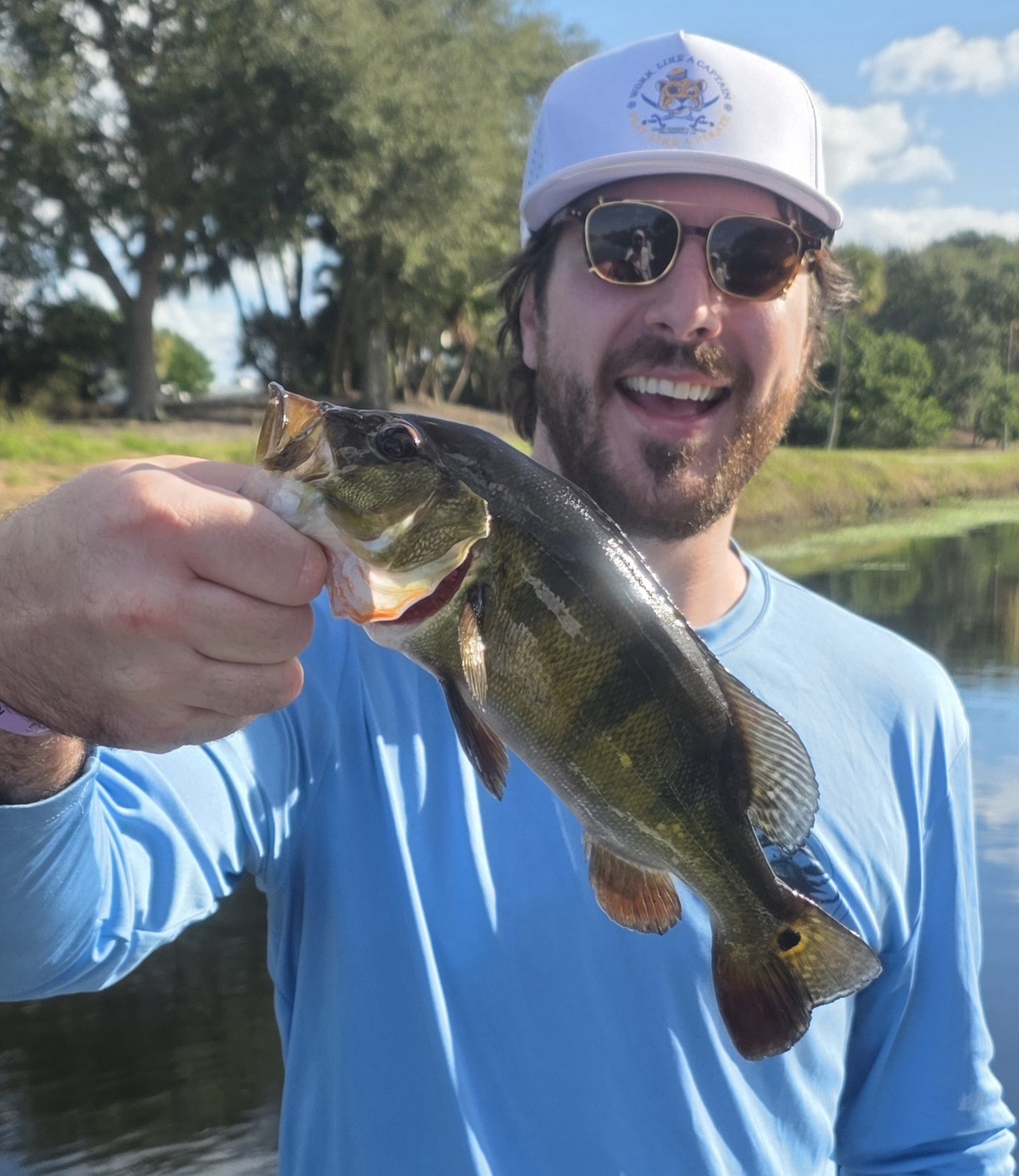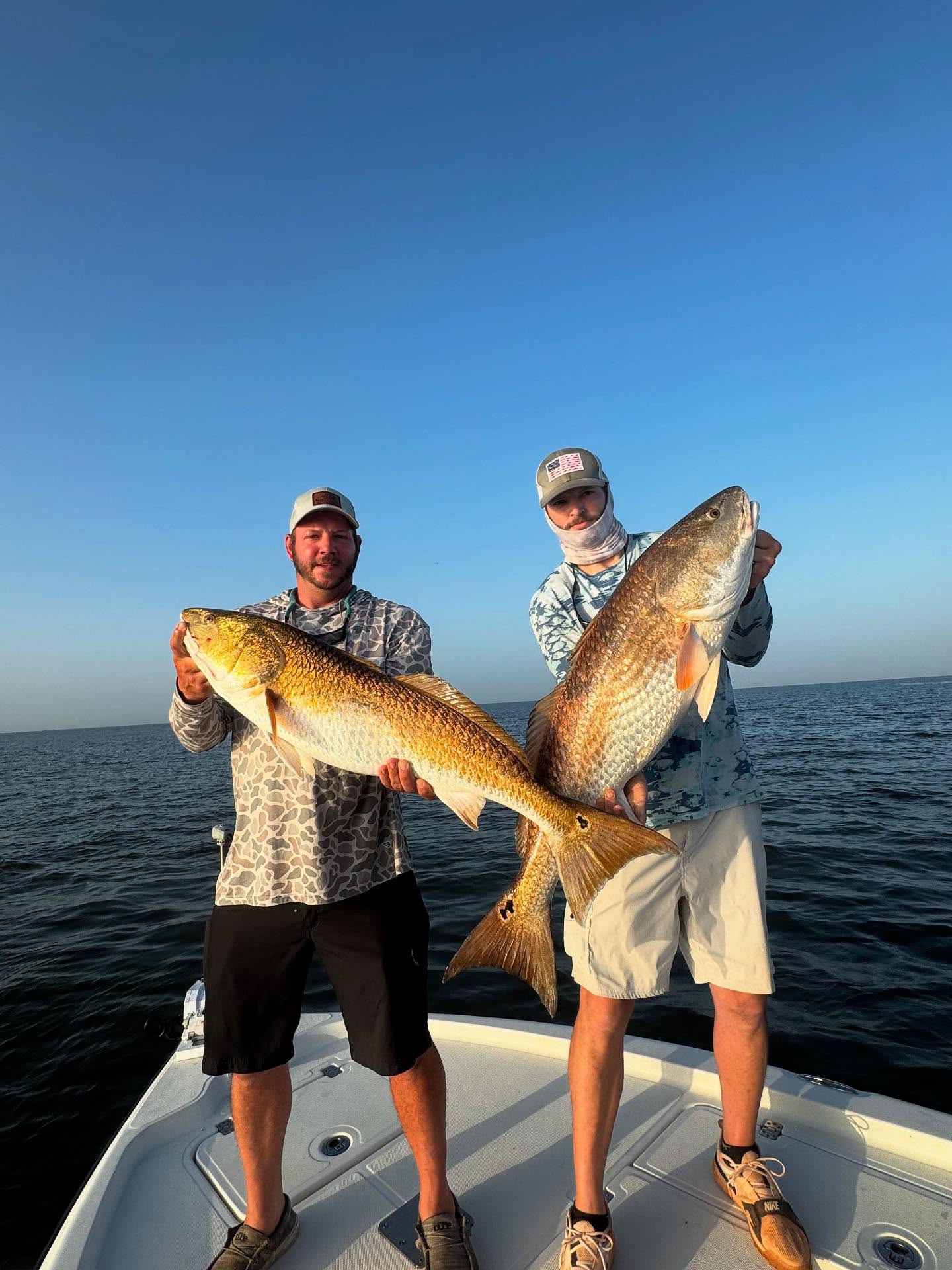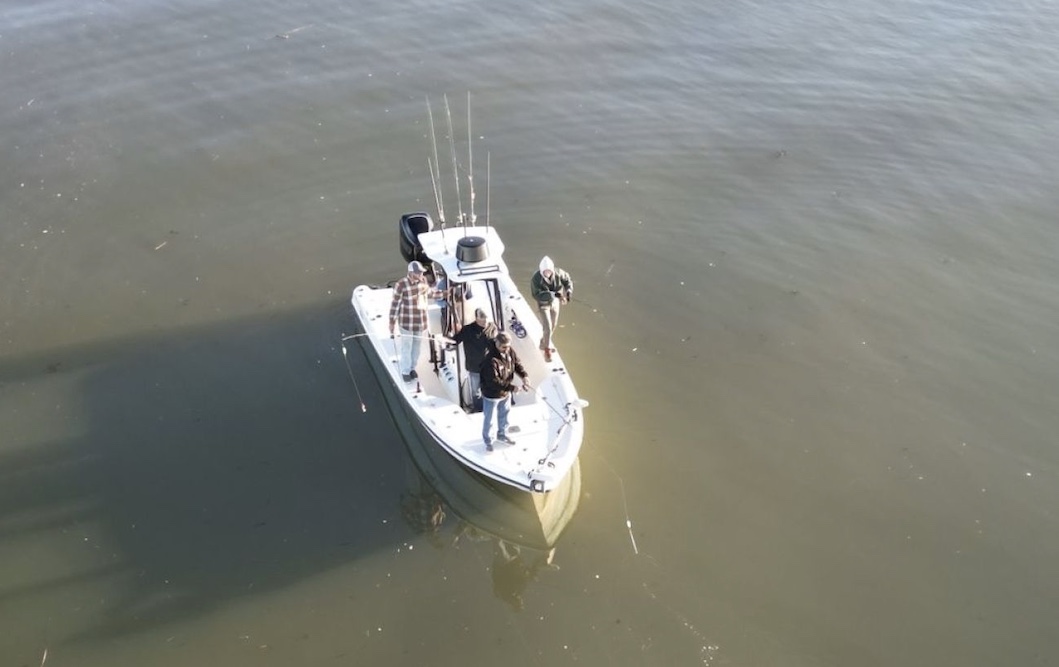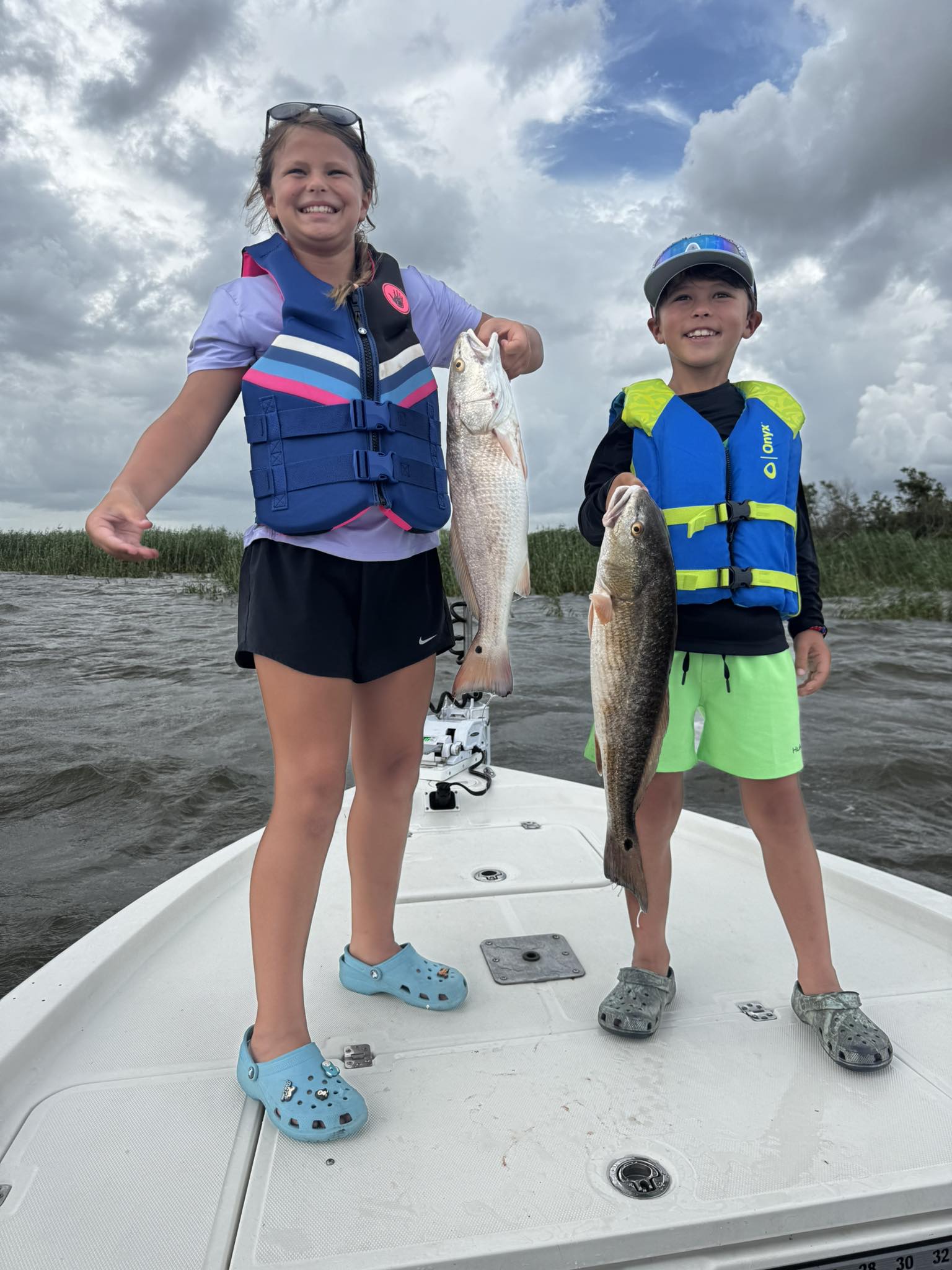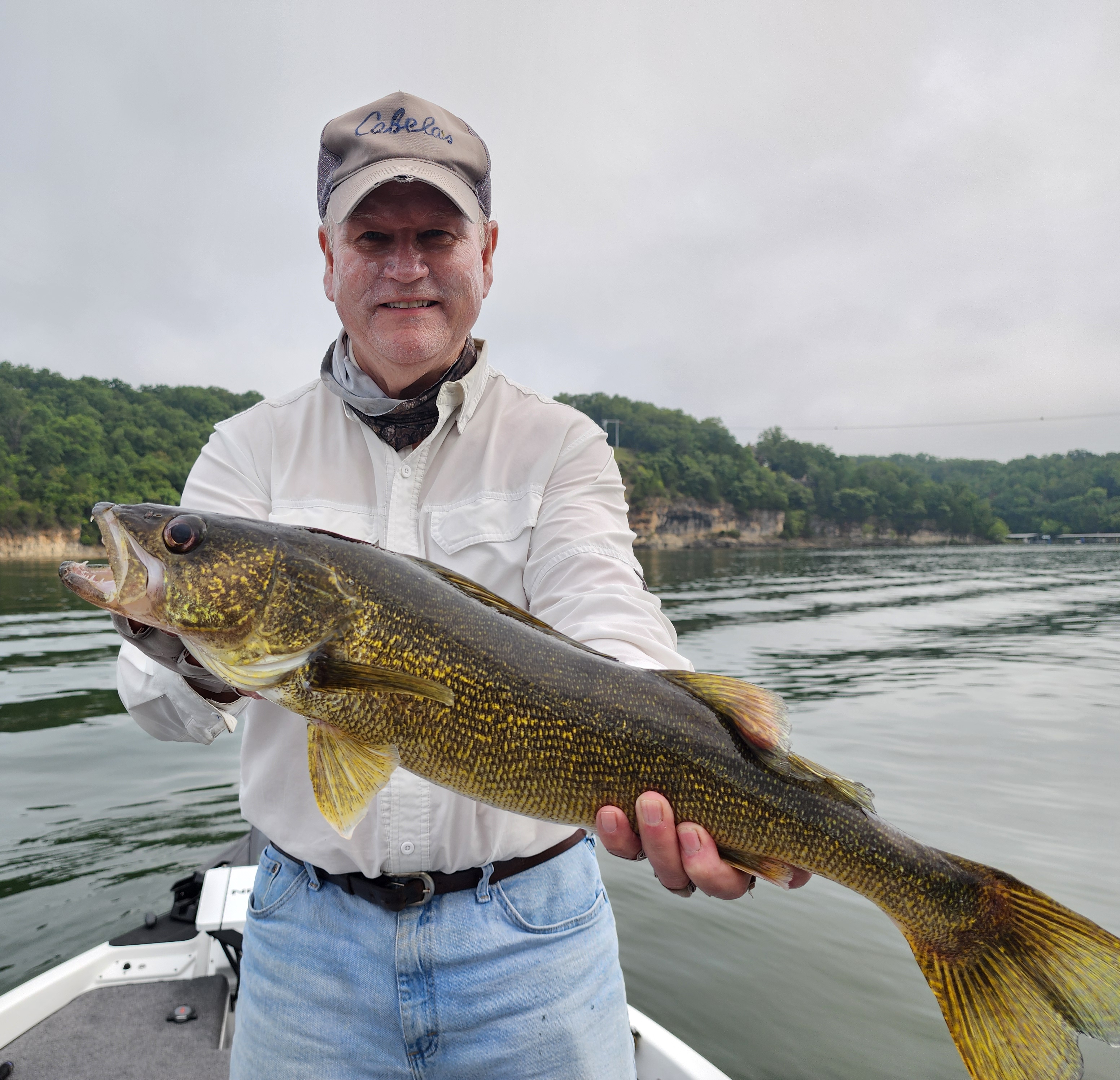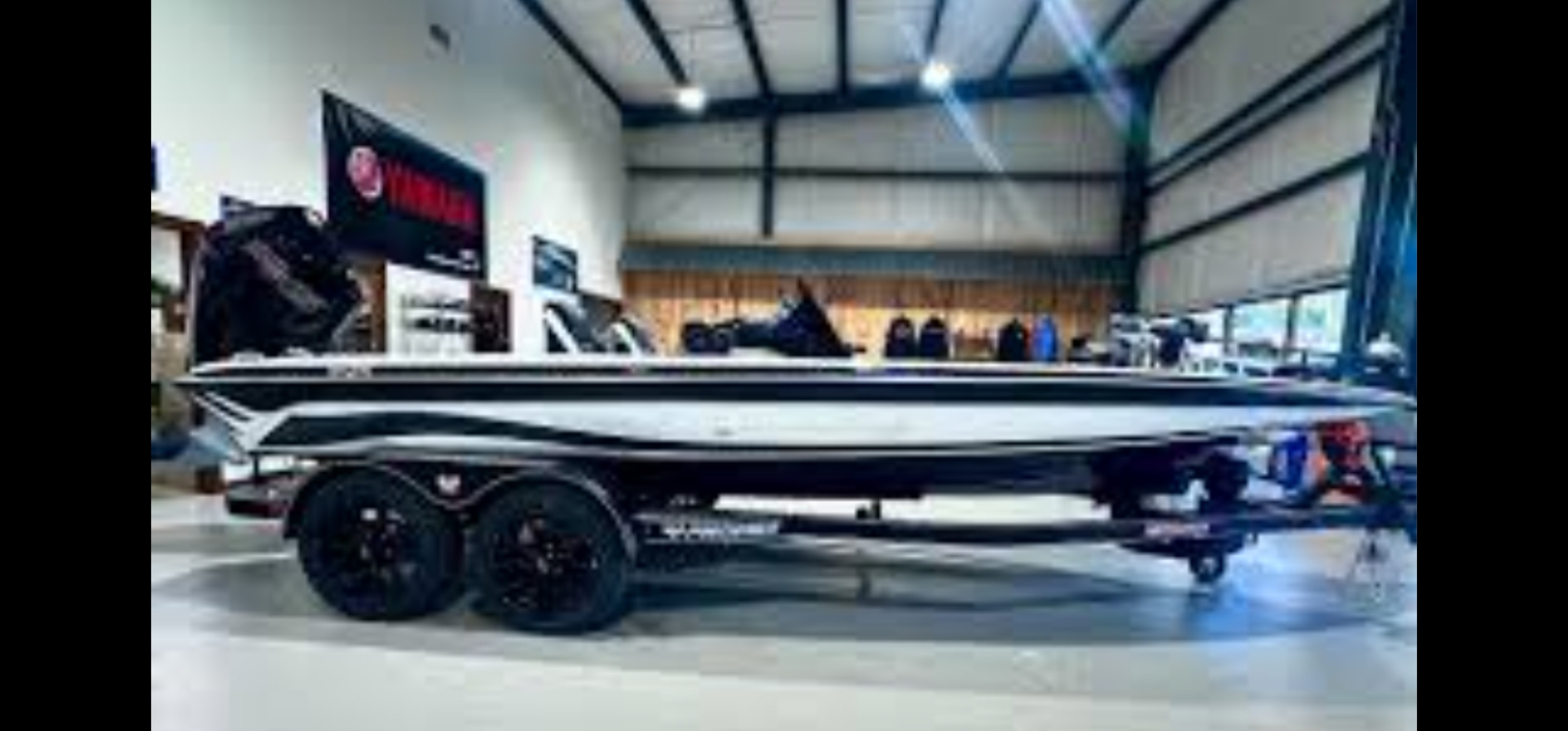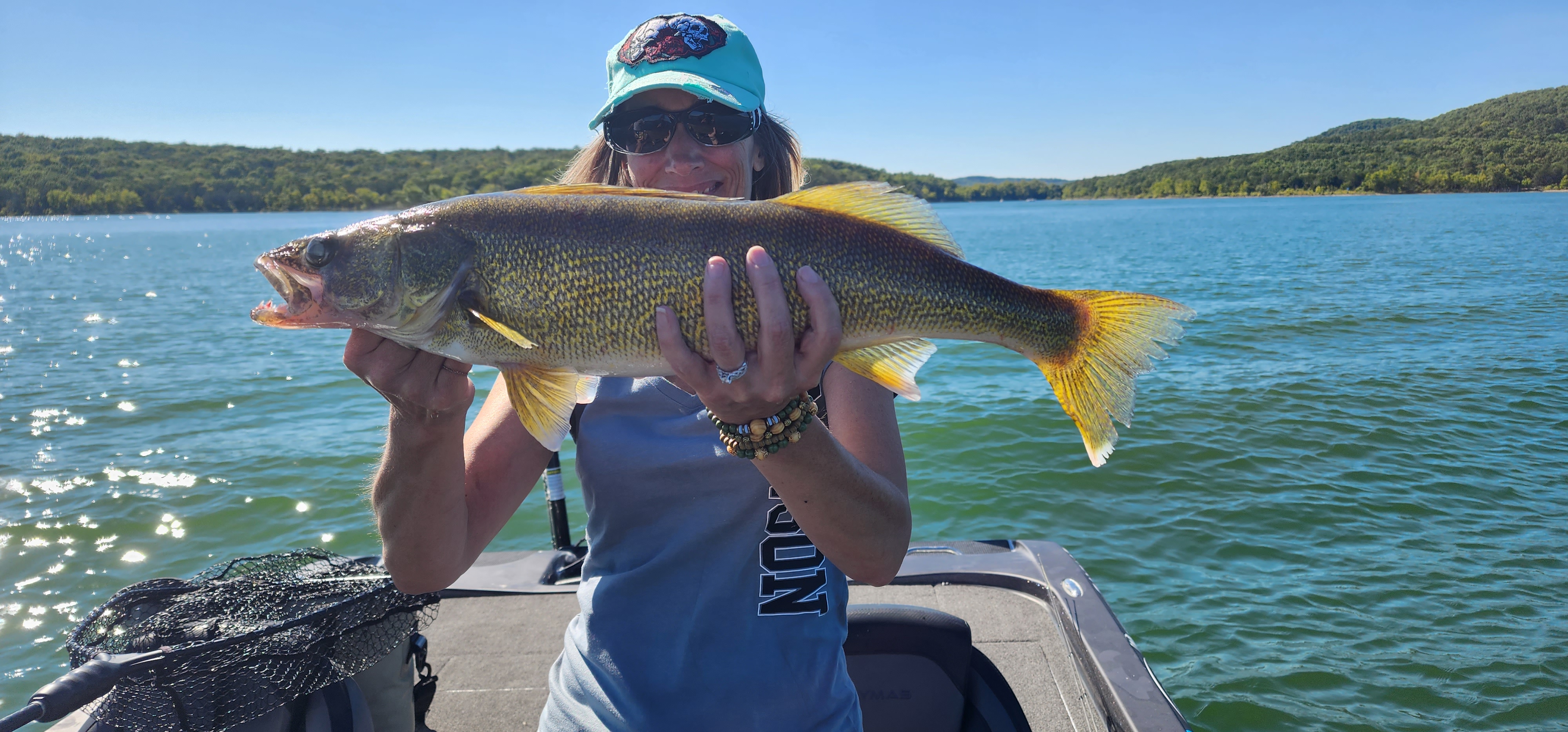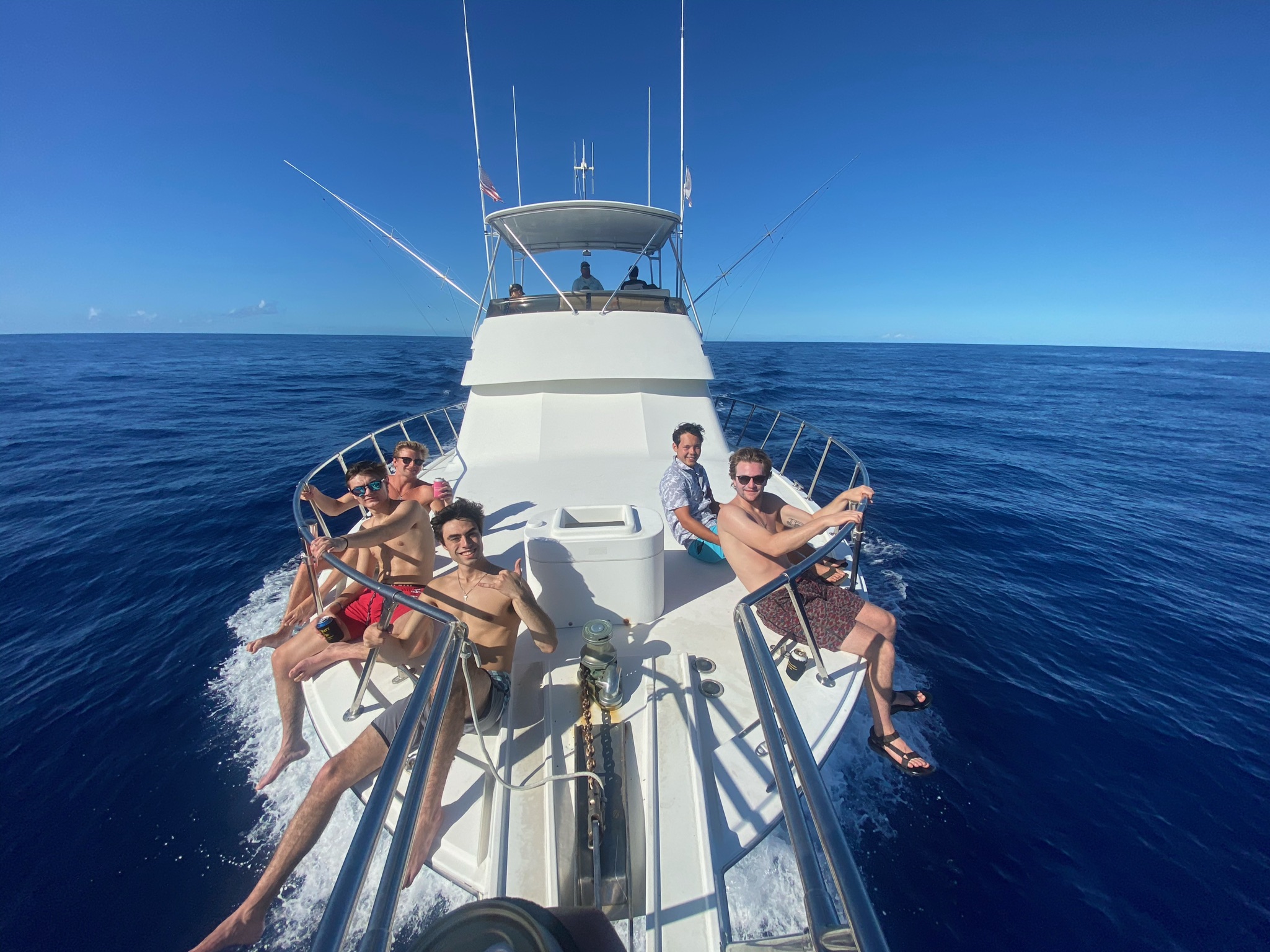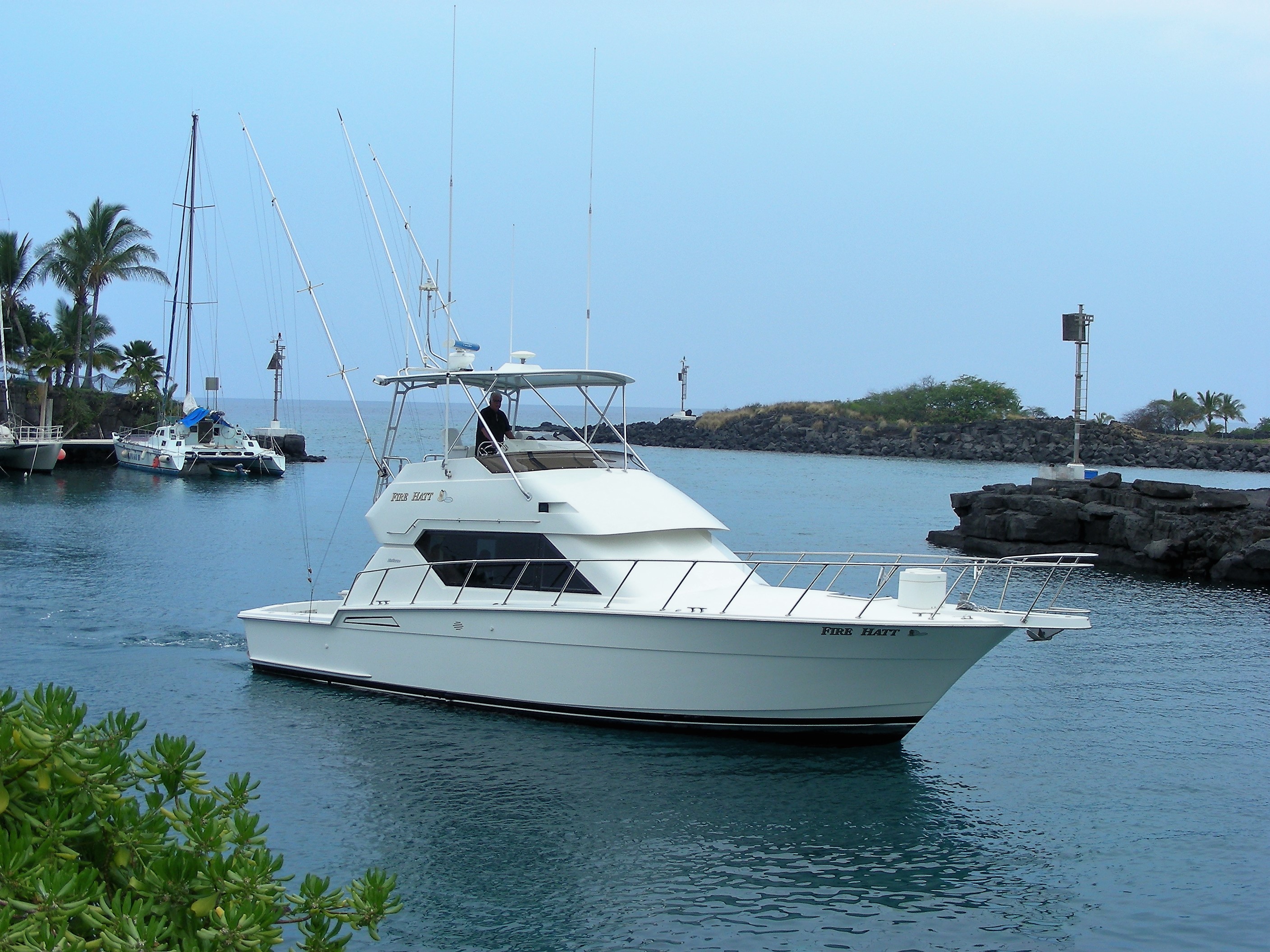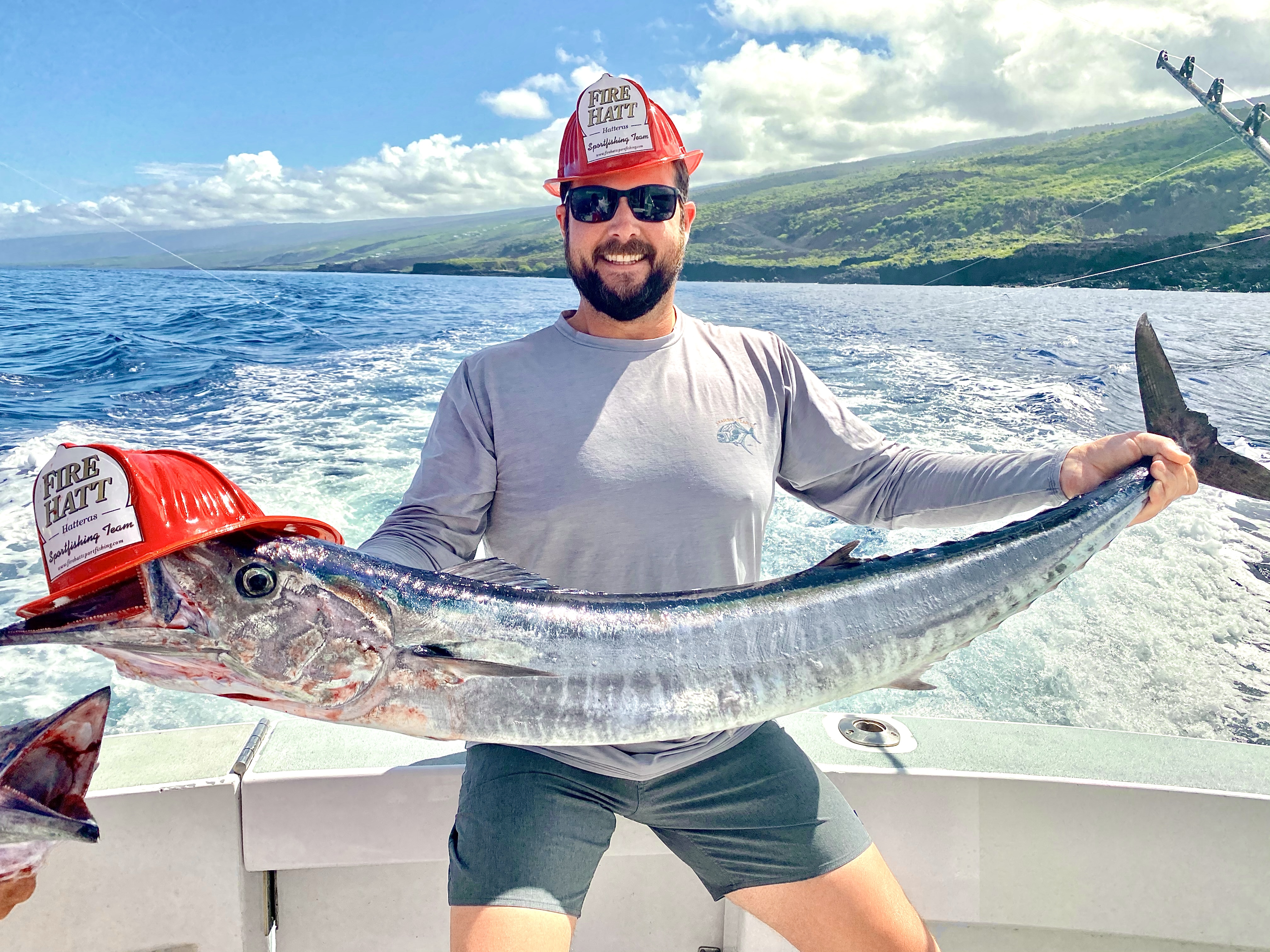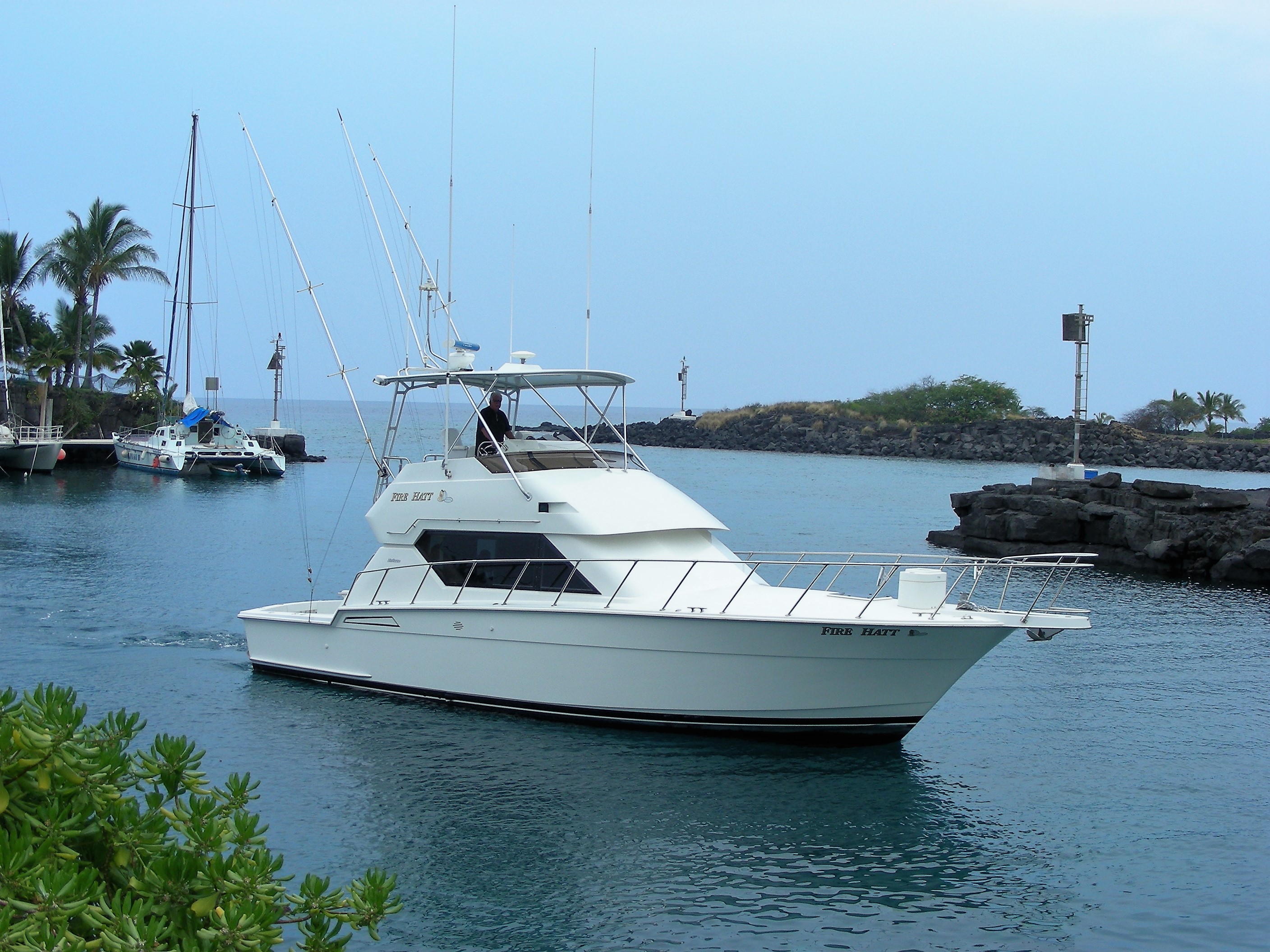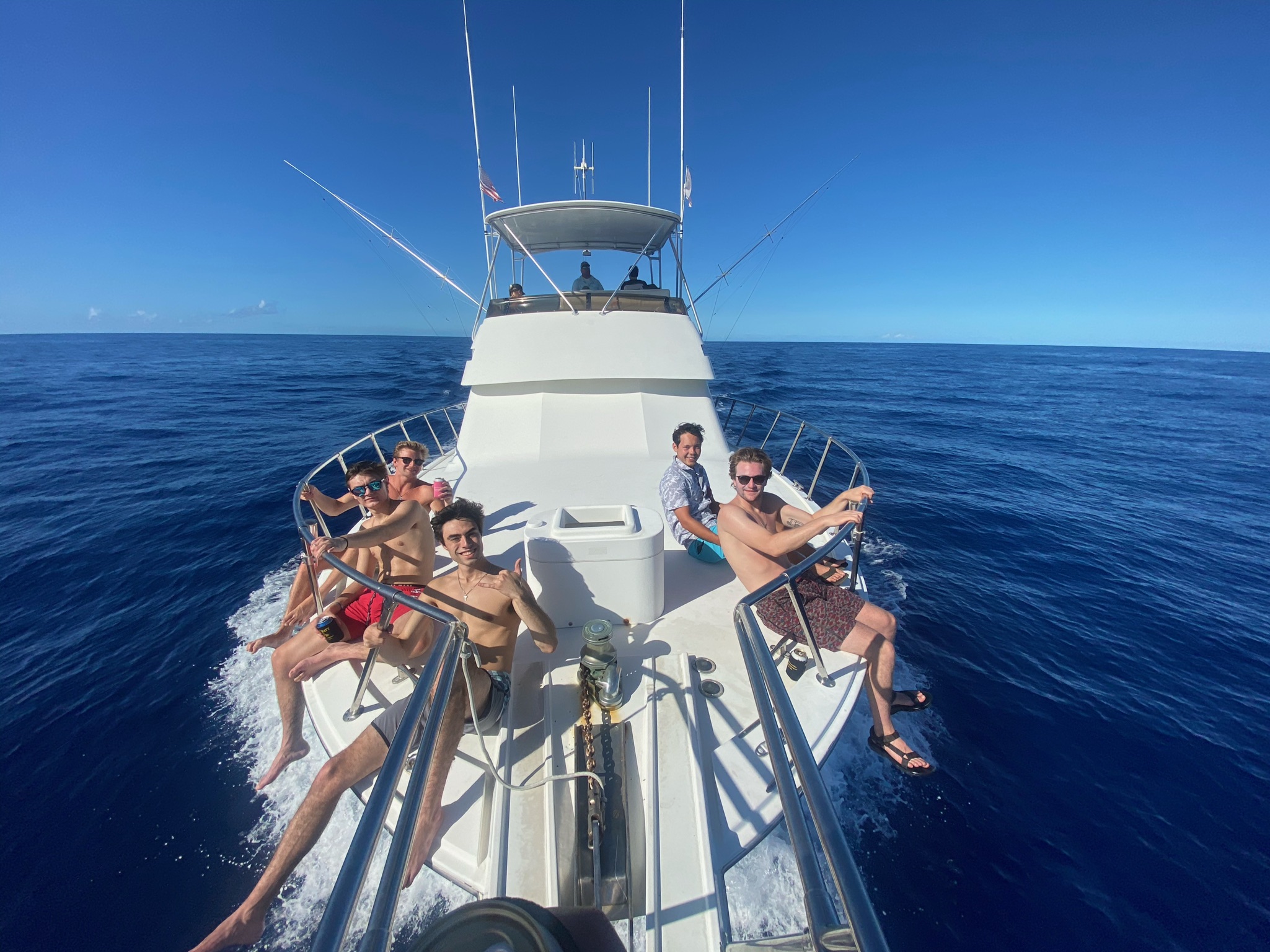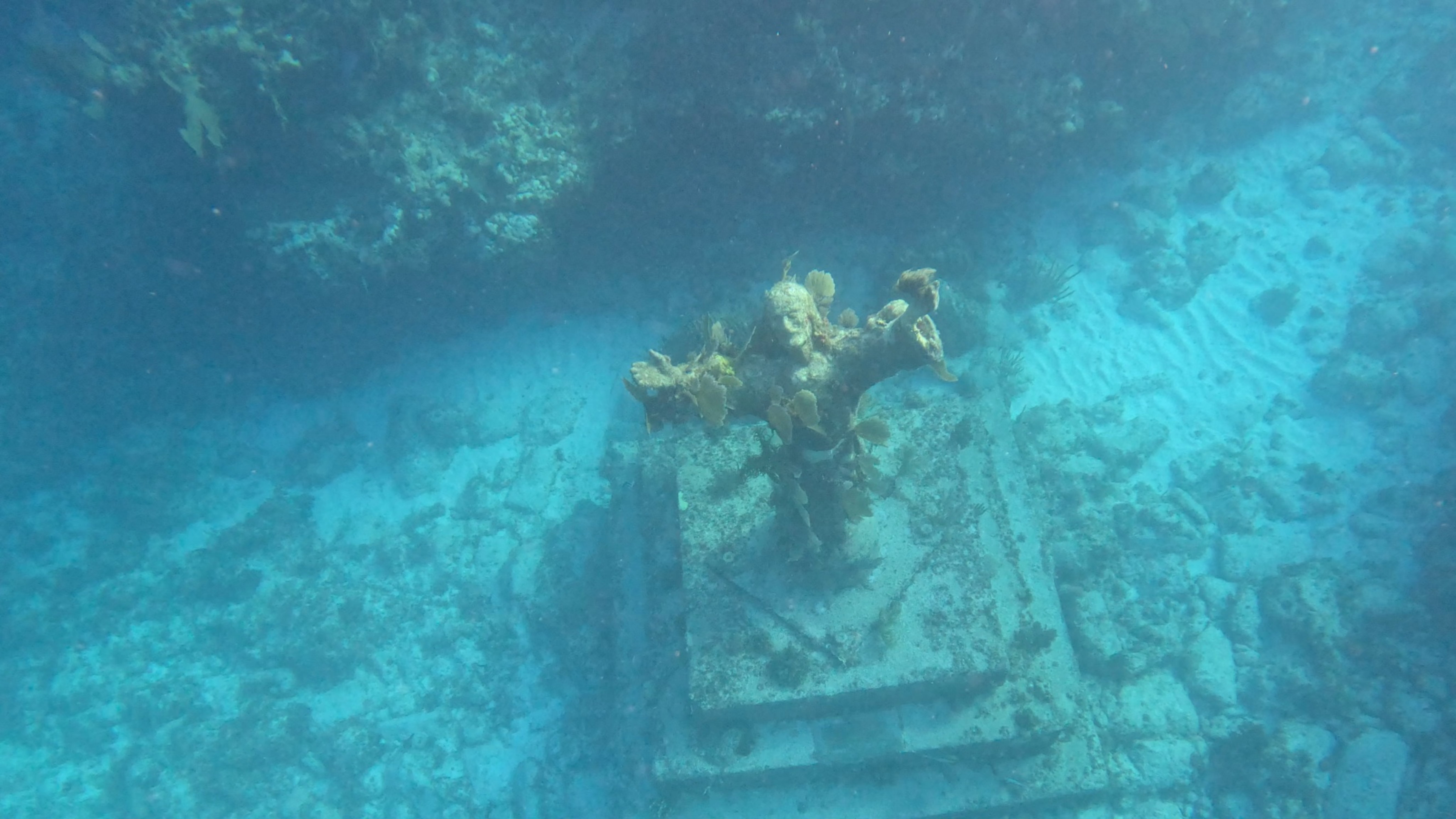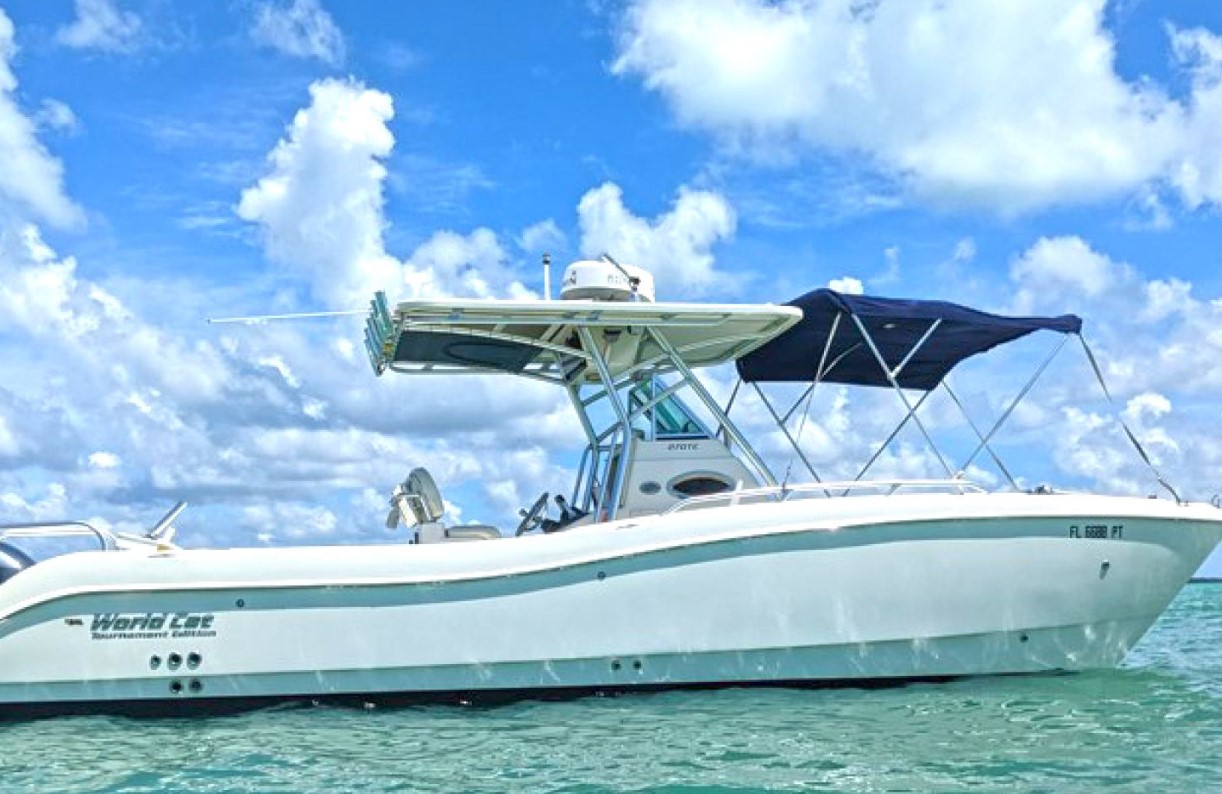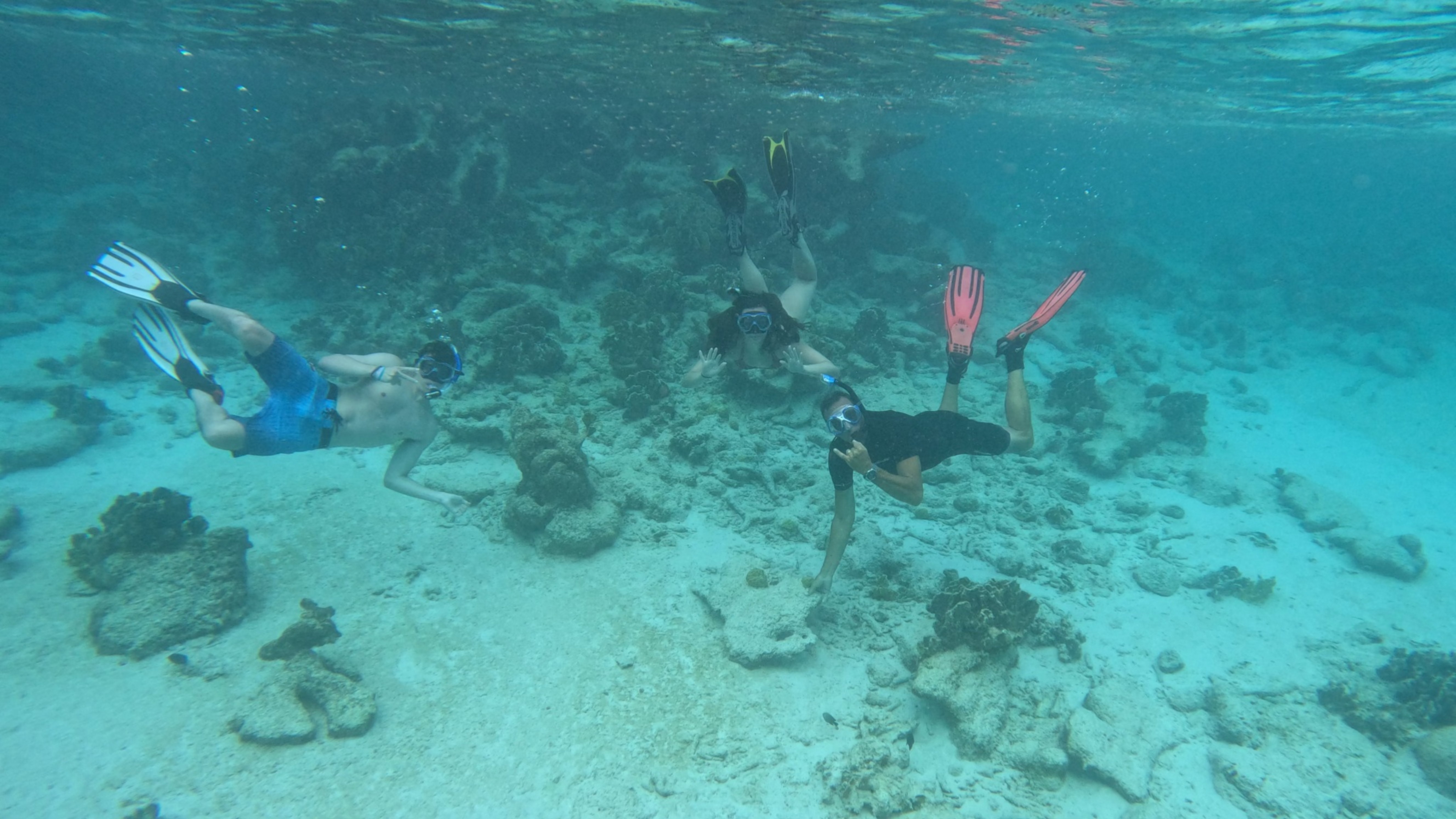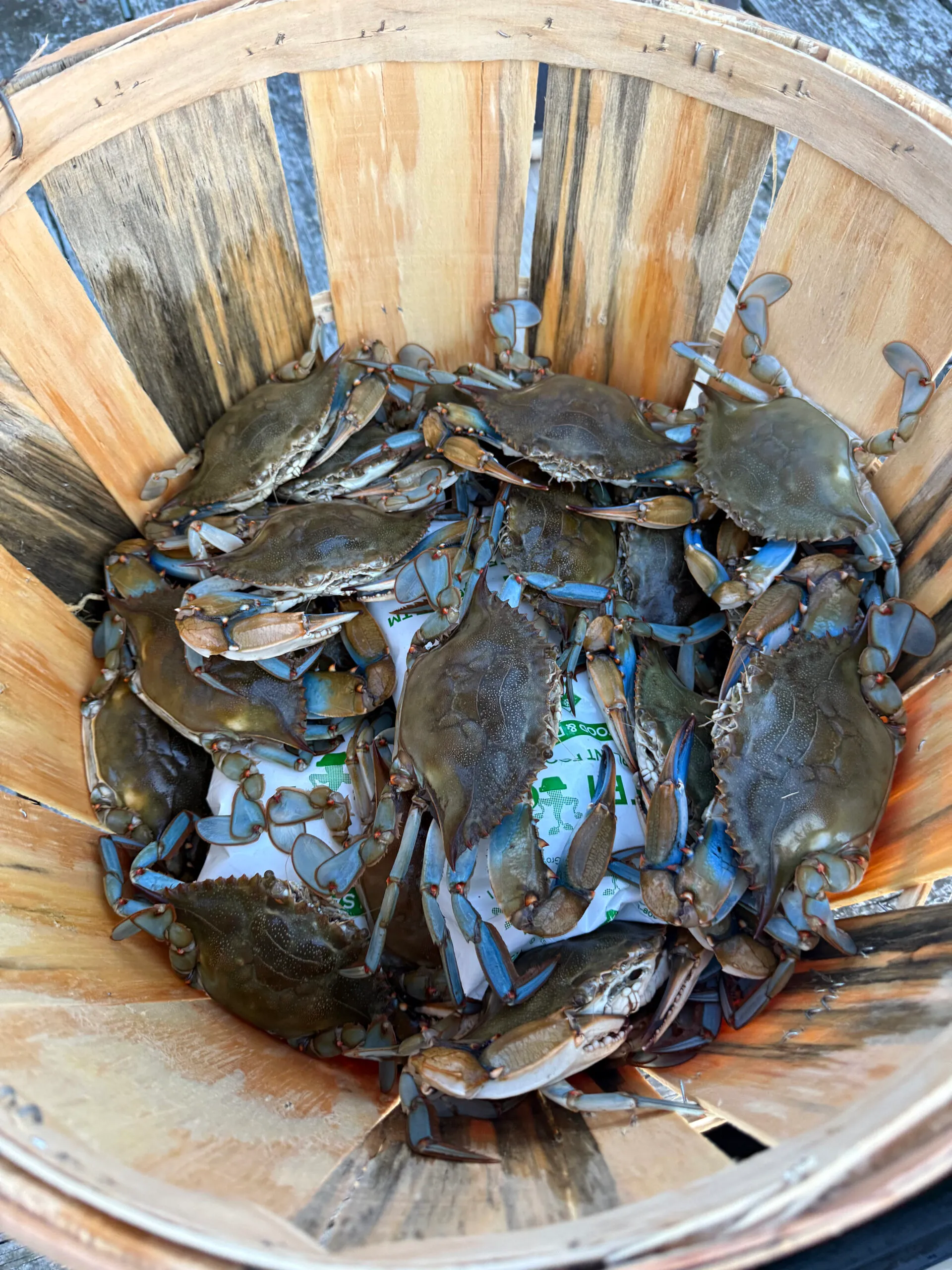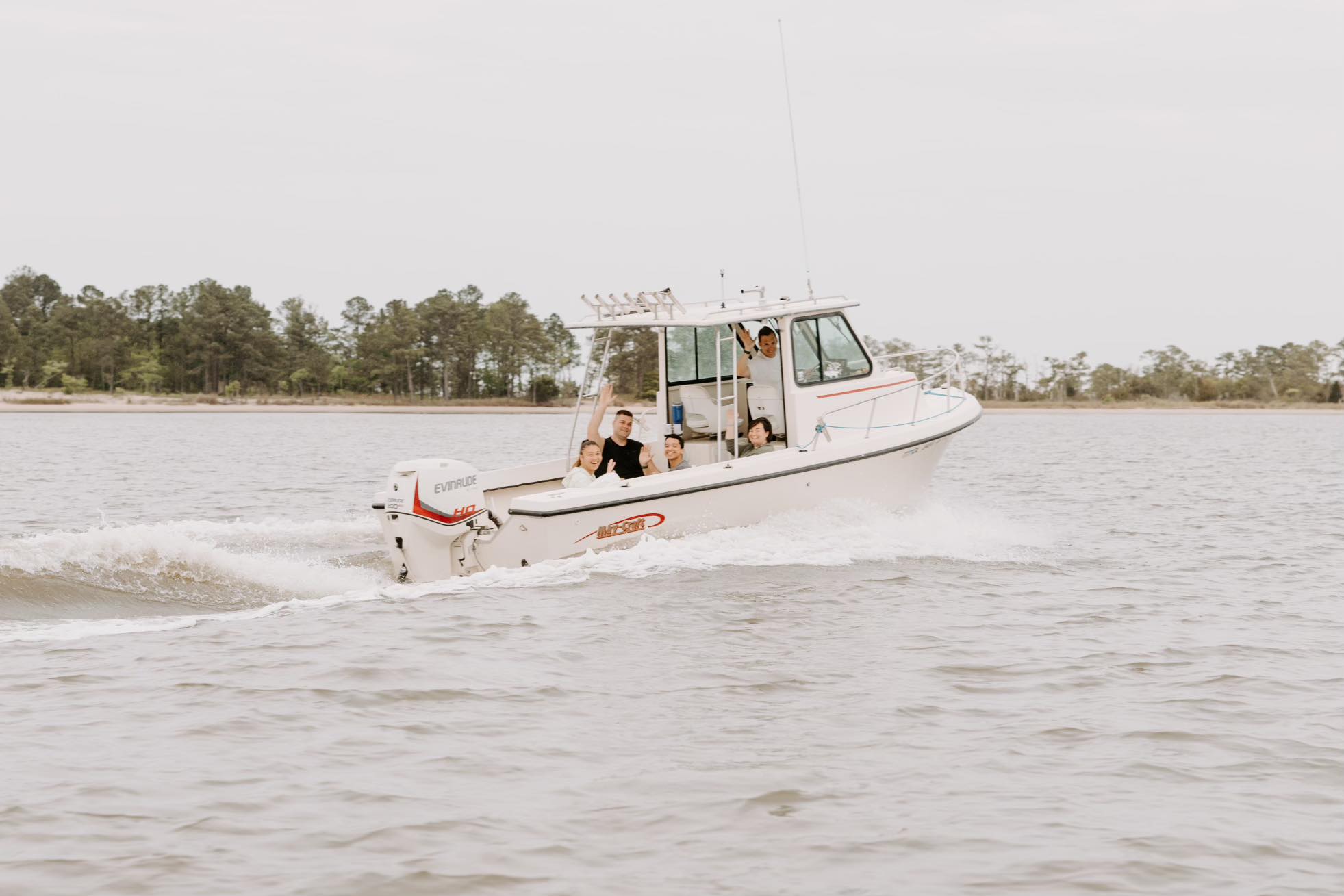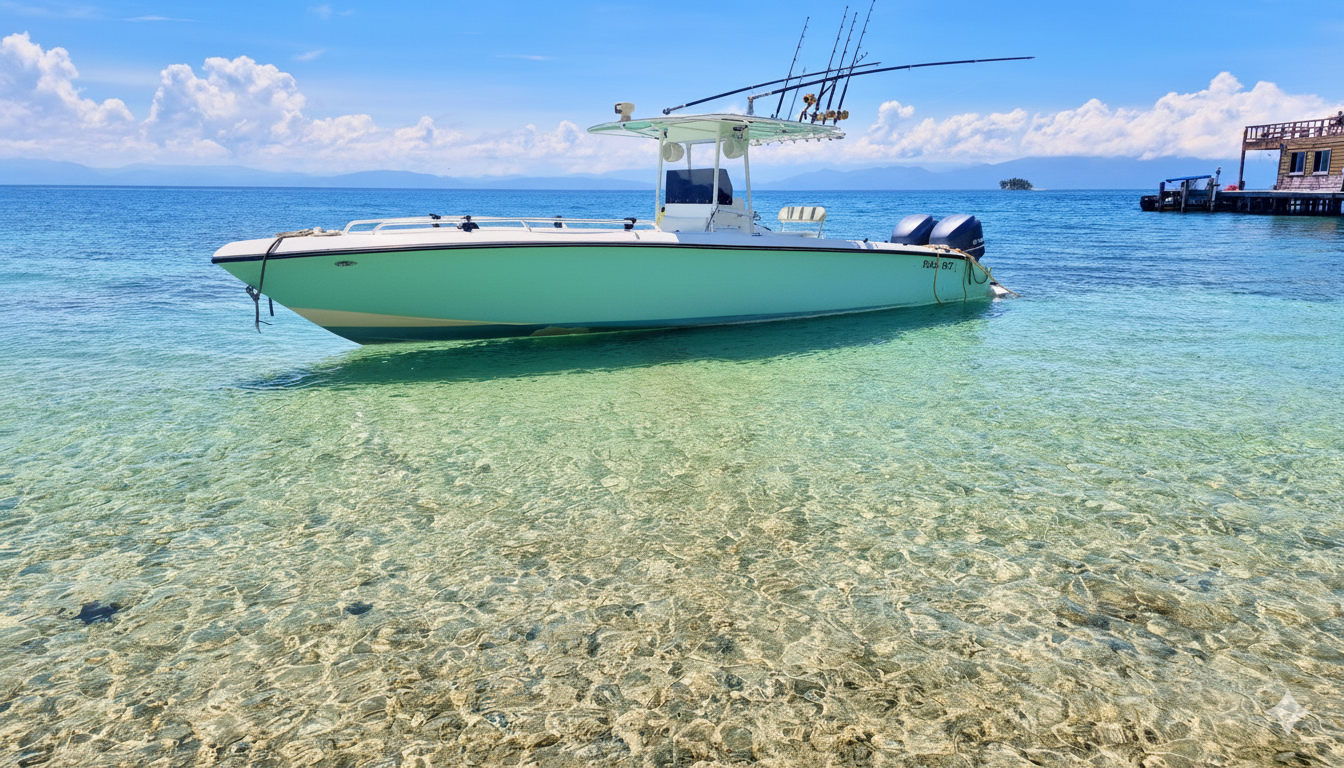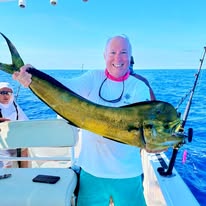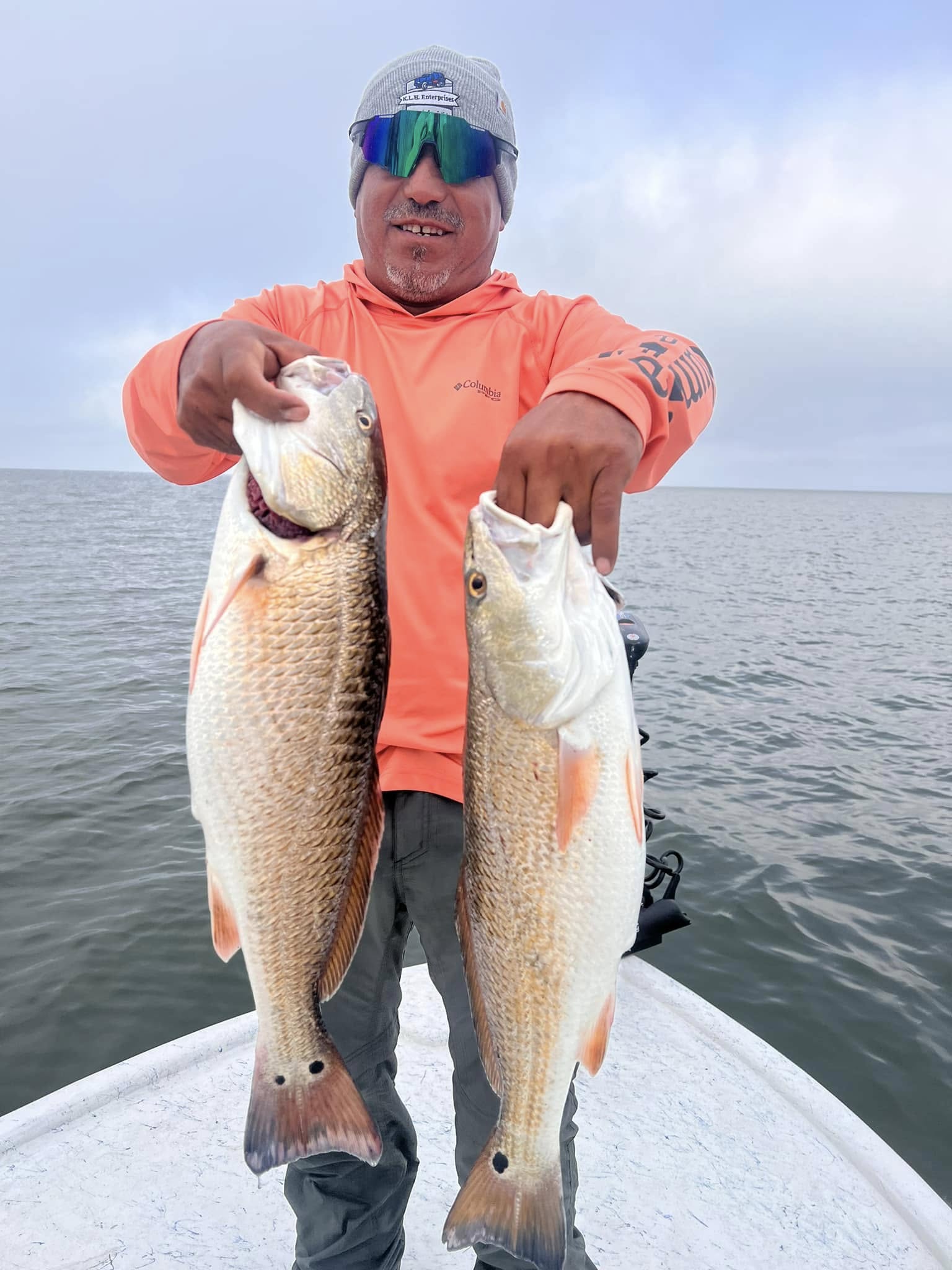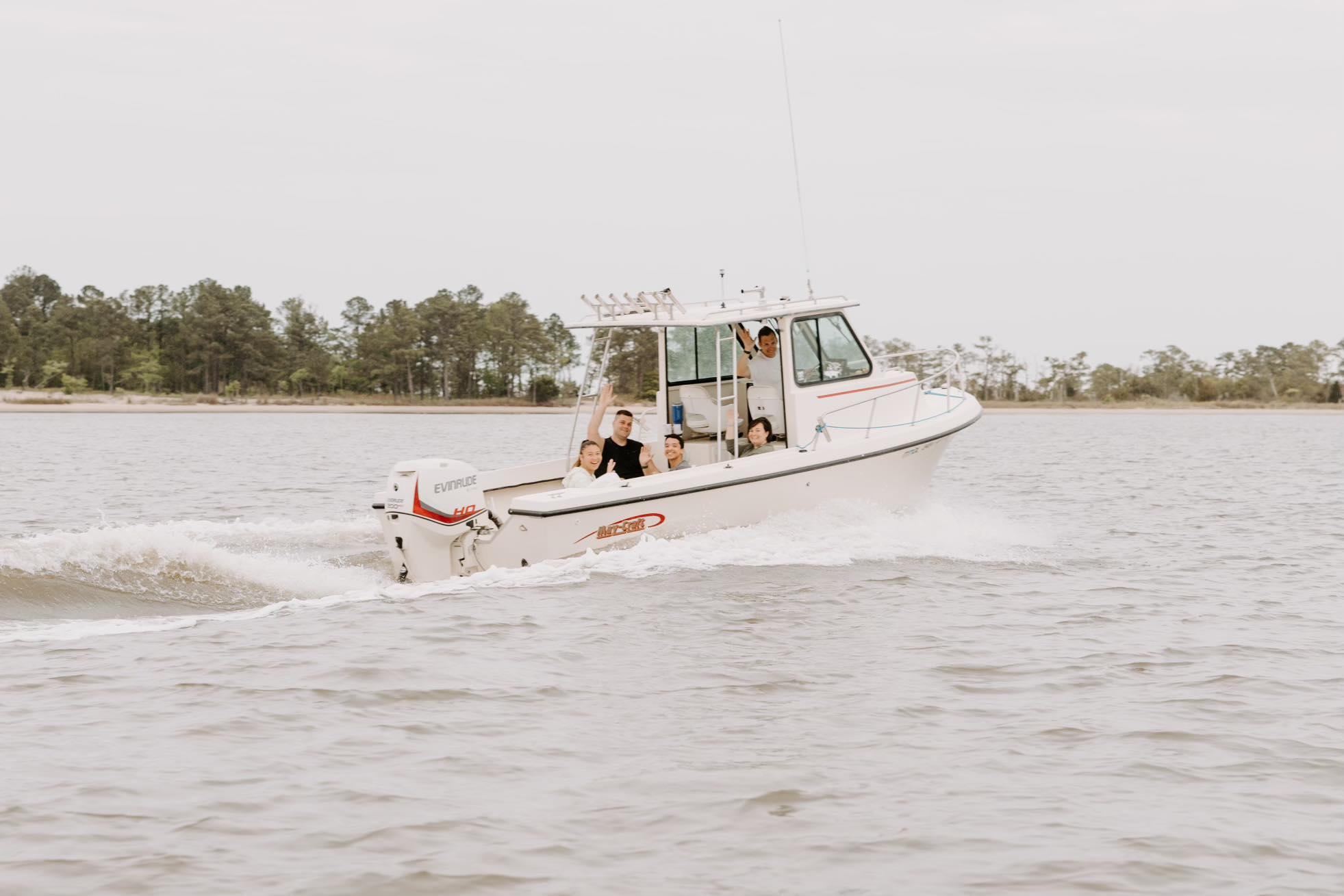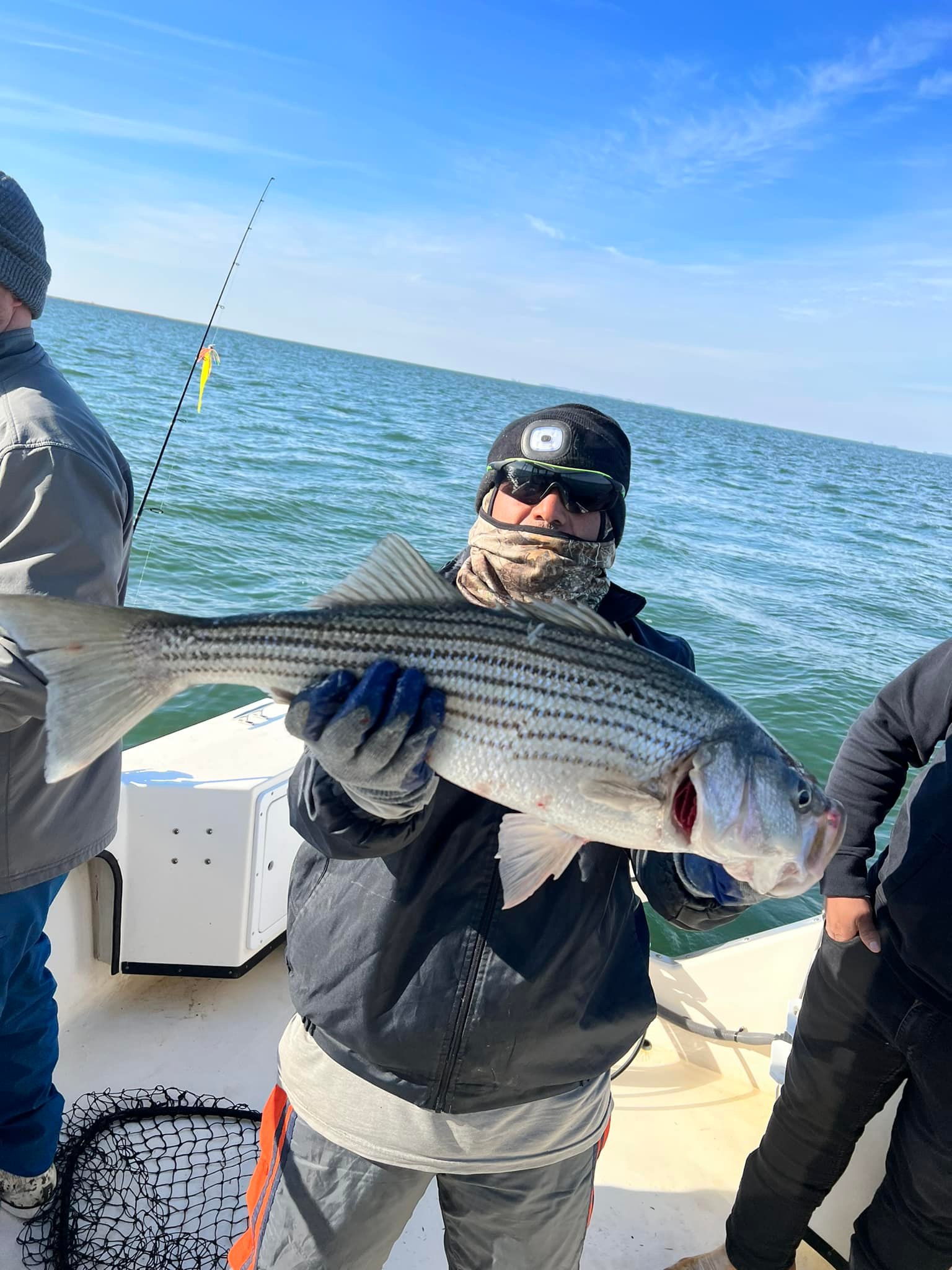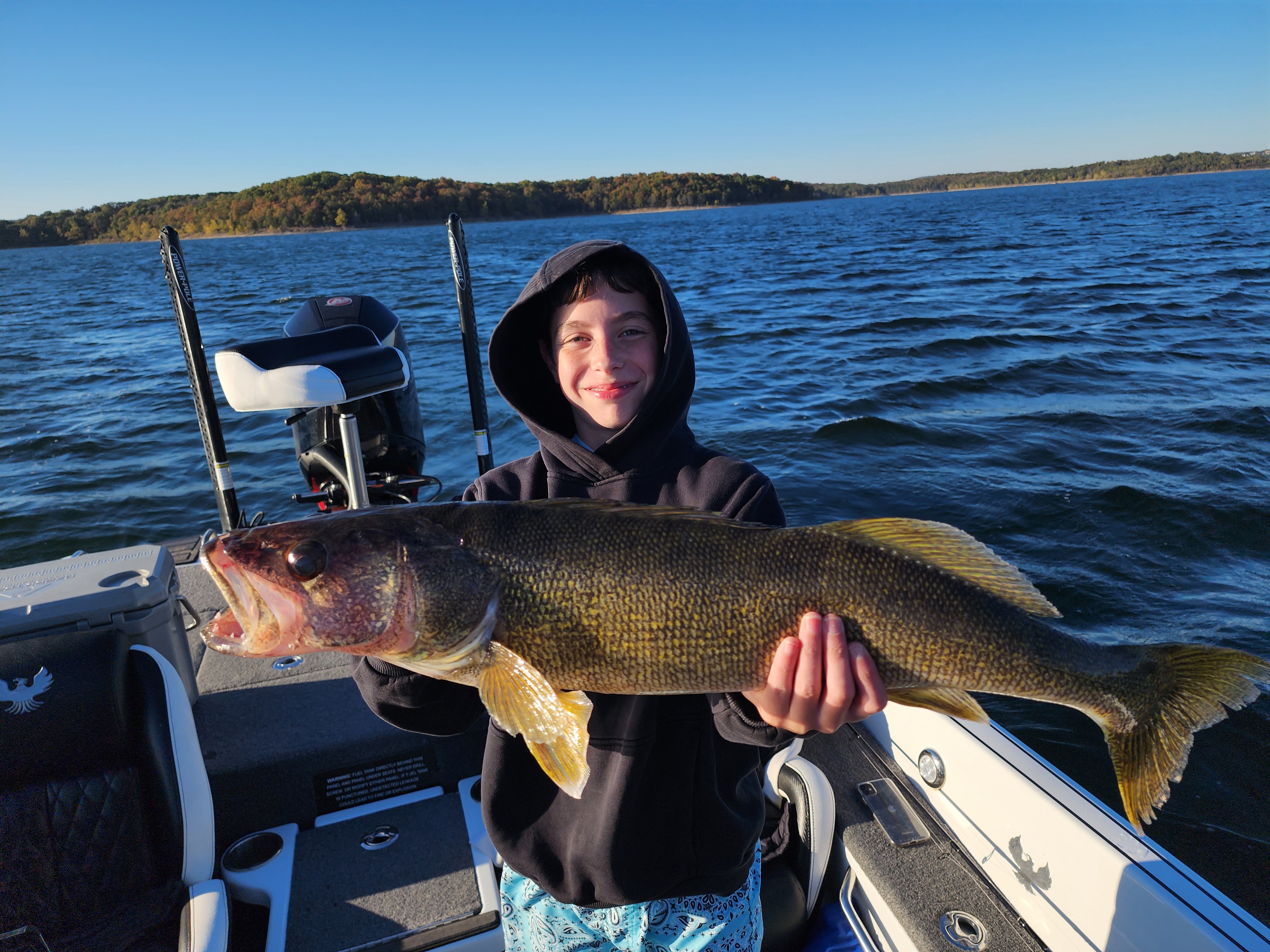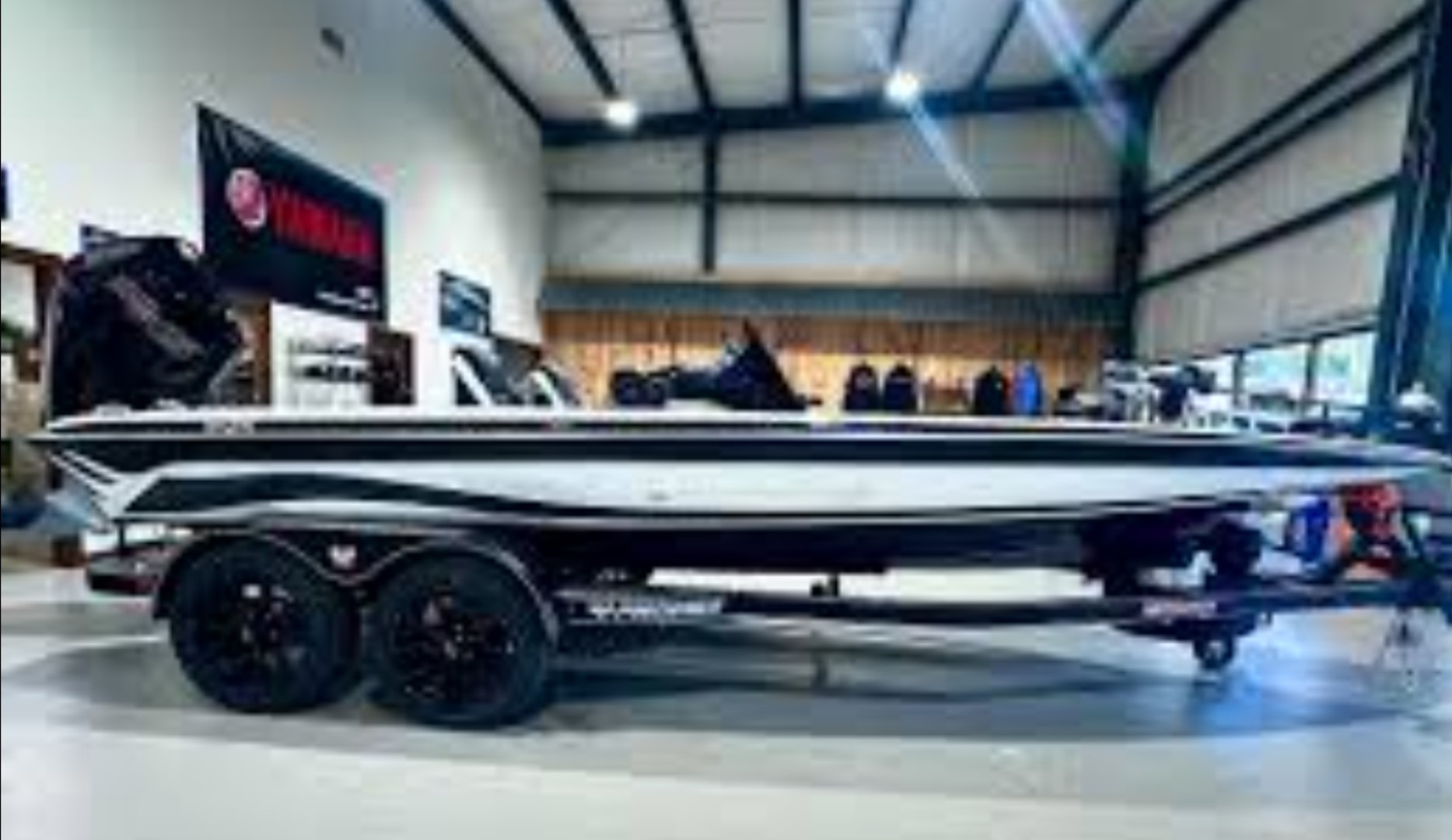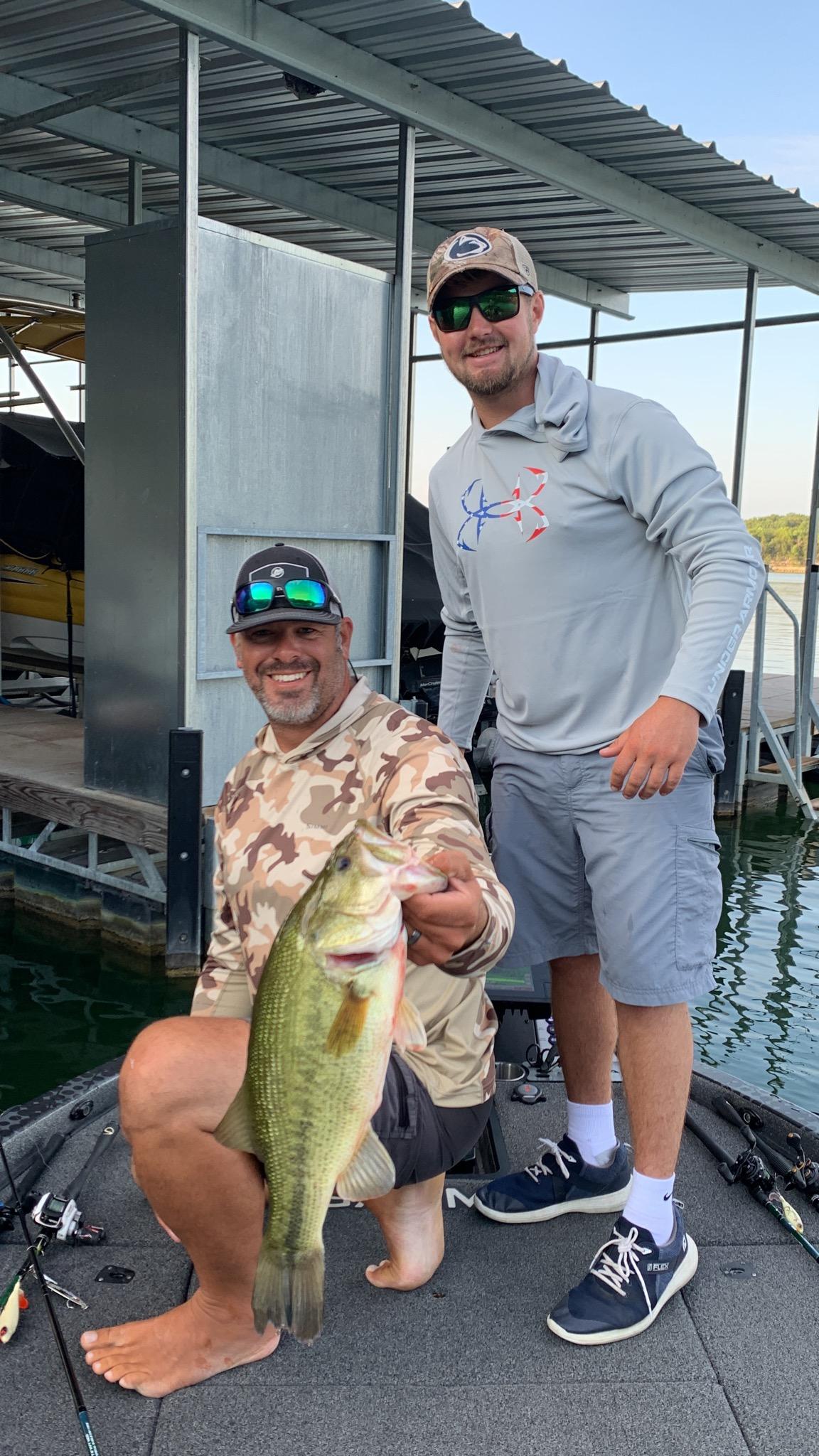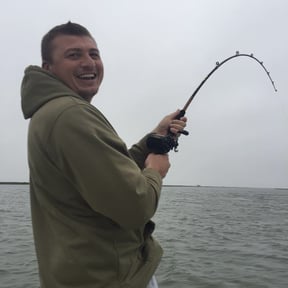Lake Ida (4-8HR)
Inshore, Nearshore, Flats in Venice
Tails In The Tides-Redfish & Trout
Lake Fishing in El Dorado Springs
Beaver Lake - Bass & Walleye
Deep Sea, Nearshore, Snorkeling in Kaiminani
Fishing And Snorkel Trips
Deep Sea, Nearshore, Snorkeling in Kaiminani
Kaiminani, HI Offshore Fishing
Deep Sea, Nearshore, Snorkeling in Key Largo
Key Largo Fishing & Snorkel Combo
Inshore, Flats, Eco Tour in Nanticoke
Crabbing And Casting Adventure!
Offshore Fishing Trip
Inshore, Flats Fishing in Nanticoke
4-6 Hour Inshore Trip
Bull Shoals - Bass & Walleye
We started Captain Experiences to make it easy to book fishing and hunting guides around the world. With over 2,000 Damn Good Guides, our platform makes finding and booking a trip seamless. Head here to check out our trips.
What Size Boat Do I Need For Offshore Fishing?
Heading miles offshore to chase giant pelagic species is one of our favorite things to do, but having the wrong boat can make your trip much less enjoyable and possibly downright dangerous. Rest assured, if you book a Captain Experiences offshore trip, you can be sure that our certified captains have the right boat and experience to make sure your trip is safe and successful. If you decide to get your own boat, here are the key things you need to consider when choosing the right boat for your trip.
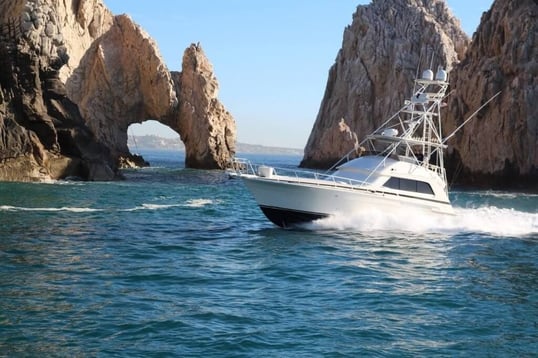
Offshore Weather Conditions
The first thing you need to know when looking for a boat to take you offshore is the typical conditions you will face on the water. Depending on where you’re fishing, the weather and waves offshore can vary from calm and flat to huge swells with wind and rain. If conditions tend to be calm, a smaller boat can do the job, but with moderate seas or weather conditions, a larger boat is the safe choice. A word of warning: The open ocean is a fickle place, and bad weather can roll in unexpectedly
Boat Length
Offshore fishing boats come in a wide range of lengths, varying from 25 to 80 feet long, but sometimes more. The most common offshore boats are usually between 30 to 40 feet, which is perfect for long trips and most weather conditions. Anything less than 30 feet will not handle weather and waves as well, but they still make for great boats if you pay attention to the weather. On the other hand, boats over 40 feet can handle all but the worst weather, while allowing you to fish with ease. If you are unsure, a good rule of thumb is that a boat over 30 feet long is a safe bet for almost any trip.
Hull Type
The vast majority of offshore fishing boats are Vee hull boats, which are sweeping wedge-shaped boats that are made to cut through waves. There are some catamaran and dual hull boats that offer a more flat and stable ride in good weather, but they will not handle poor conditions as well. The vee hull is the standard, and it’s almost always the best choice for an offshore trip.
Common Types of Offshore Boats
Cuddy Cabin
A cuddy cabin is a popular style of fishing boat that has a few more comfort features than other more dedicated offshore vessels. These boats have a vee hull that’s 20 to 35 feet long and have inboard engines. The cockpit on these boats is offset to one side to allow access to the defining small cabin toward the front of the boat. The interior of the cuddy cabin is usually outfitted with seats that can sometimes be used as a bed. Some higher-end boats have a bathroom as well.
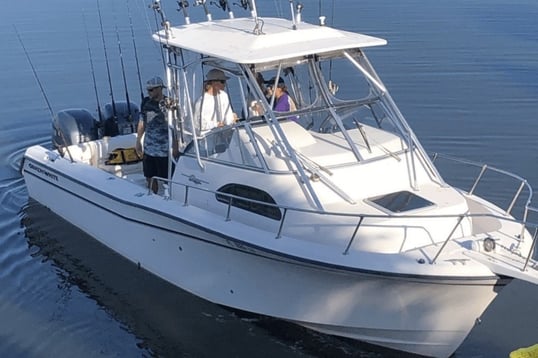
Down East Cruiser
The down east cruiser is a classic and popular boat design that has been in use by both commercial and recreational anglers for over 100 years. With a large hull, big engines, and plenty of fuel, these boats are great for long-range, deep-sea fishing trips. These boats range from 25 to 45+ feet long and have a deep vee bow and hull, making them capable of handling rough seas. With single or double inboard engines, these boats can cover a lot of water and carry everything you need with room to spare.
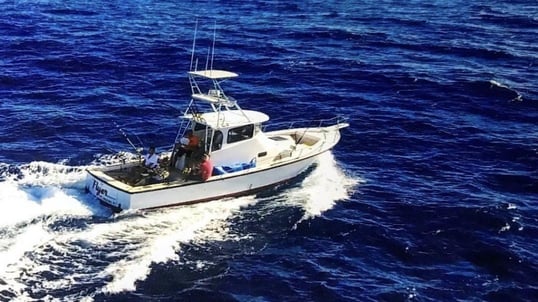
What is a Sport Fisher?
The sport fisher is purpose-built for going offshore and chasing big fish. These boats start at 30 feet but can be as large as 80 and even 90 feet long. Sport fishers have tuna towers where the captain can control the boat while looking for large fish or bait balls. With a range of 600+ miles and equipped with outriggers that allow you to troll with a spread of lures wider than the boat, a sport fisher can take you wherever you need to go to find the fish you’re after. Sport fishers are also accommodating, with an enclosed cabin and cockpit area that will comfortably fit 6-8 people.
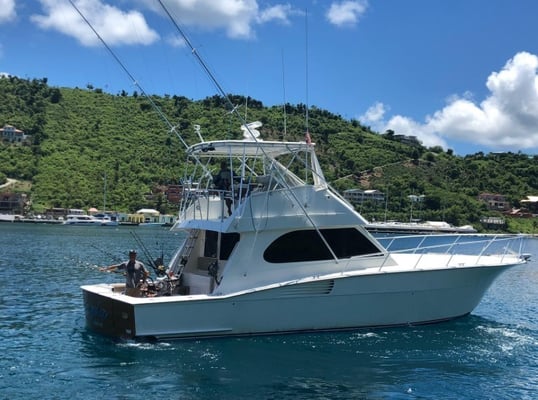
Best Boat for Offshore Fishing
When it’s time to pick a boat to take you offshore, always keep in mind the weather you will be dealing with. The classic deep-vee hull is the best overall choice for offshore fishing because it will be stable while cruising in calm seas, but also cut through waves if you get caught in rough conditions. The best length for a general-purpose offshore fishing boat will fall between 30 to 40 feet, which will handle long-distance travel and most weather conditions. If you pick a boat that follows these general guidelines, it puts you in the best position to have a smooth and successful trip.
Joey Butrus
Updated on July 31, 2023
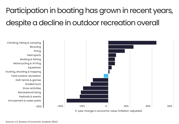
June 28, 2023

October 26, 2020
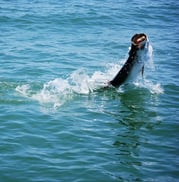
April 15, 2022
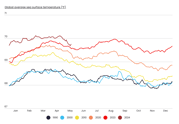
November 15, 2023
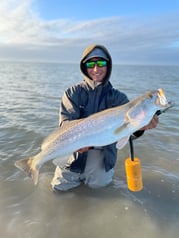
January 19, 2021
Related Articles
April 18, 2022
January 27, 2022
June 15, 2022
Featured Locations
- Fishing Charters Near Me
- Austin Fishing Guides
- Biloxi Fishing Charters
- Bradenton Fishing Charters
- Cabo San Lucas Fishing Charters
- Cancun Fishing Charters
- Cape Coral Fishing Charters
- Charleston Fishing Charters
- Clearwater Fishing Charters
- Corpus Christi Fishing Charters
- Crystal River Fishing Charters
- Dauphin Island Fishing Charters
- Daytona Beach Fishing Charters
- Destin Fishing Charters
- Fort Lauderdale Fishing Charters
- Fort Myers Fishing Charters
- Fort Walton Beach Fishing Charters
- Galveston Fishing Charters
- Gulf Shores Fishing Charters
- Hatteras Fishing Charters
- Hilton Head Fishing Charters
- Islamorada Fishing Charters
- Jacksonville Fishing Charters
- Jupiter Fishing Charters
- Key Largo Fishing Charters
- Key West Fishing Charters
- Kona Fishing Charters
- Lakeside Marblehead Fishing Charters
- Marathon Fishing Charters
- Marco Island Fishing Charters
- Miami Fishing Charters
- Montauk Fishing Charters
- Morehead City Fishing Charters
- Naples Fishing Charters
- New Orleans Fishing Charters
- New Smyrna Beach Fishing Charters
- Ocean City Fishing Charters
- Orange Beach Fishing Charters
- Panama City Beach Fishing Charters
- Pensacola Fishing Charters
- Pompano Beach Fishing Charters
- Port Aransas Fishing Charters
- Port Orange Fishing Charters
- Rockport Fishing Charters
- San Diego Fishing Charters
- San Juan Fishing Charters
- Sarasota Fishing Charters
- South Padre Island Fishing Charters
- St. Augustine Fishing Charters
- St. Petersburg Fishing Charters
- Tampa Fishing Charters
- Tarpon Springs Fishing Charters
- Venice Fishing Charters
- Virginia Beach Fishing Charters
- West Palm Beach Fishing Charters
- Wilmington Fishing Charters
- Wrightsville Beach Fishing Charters
